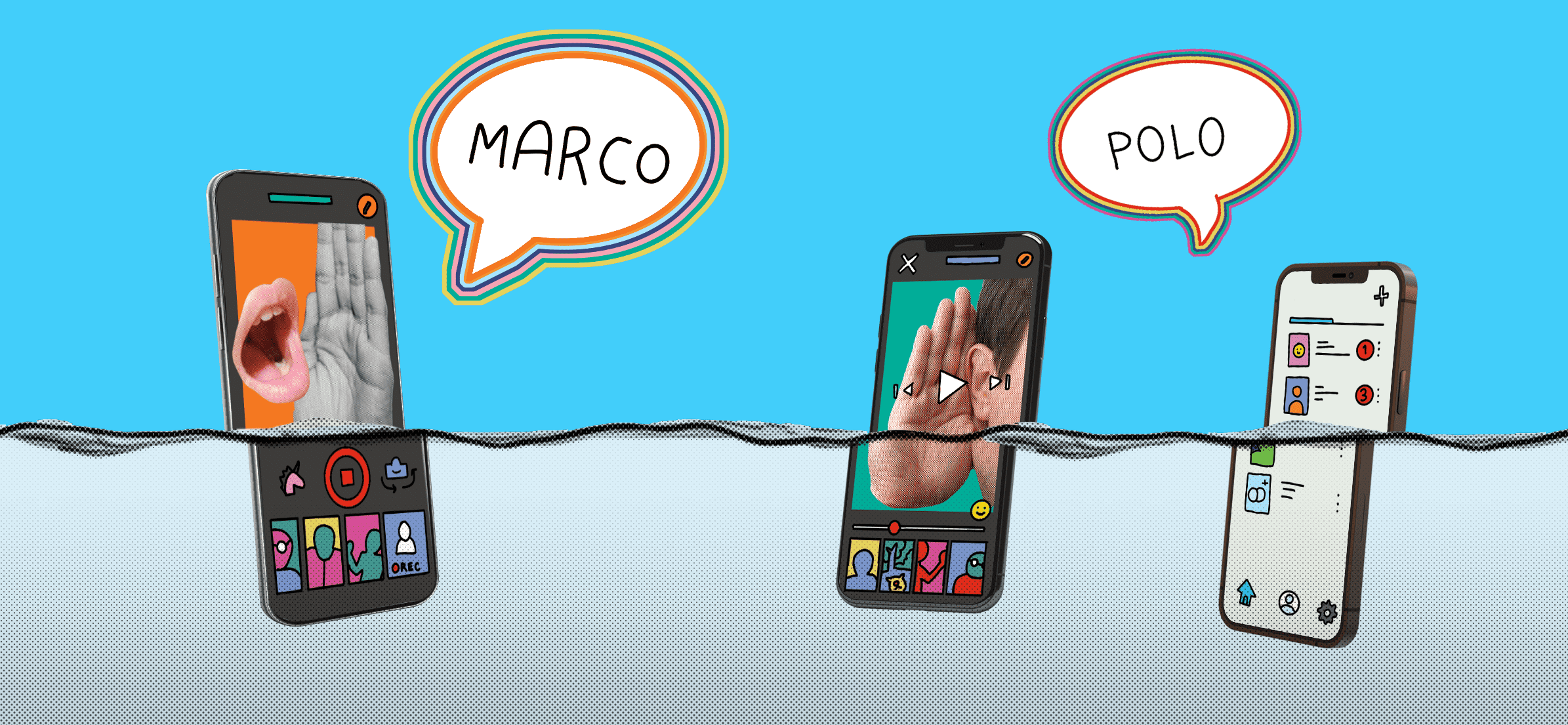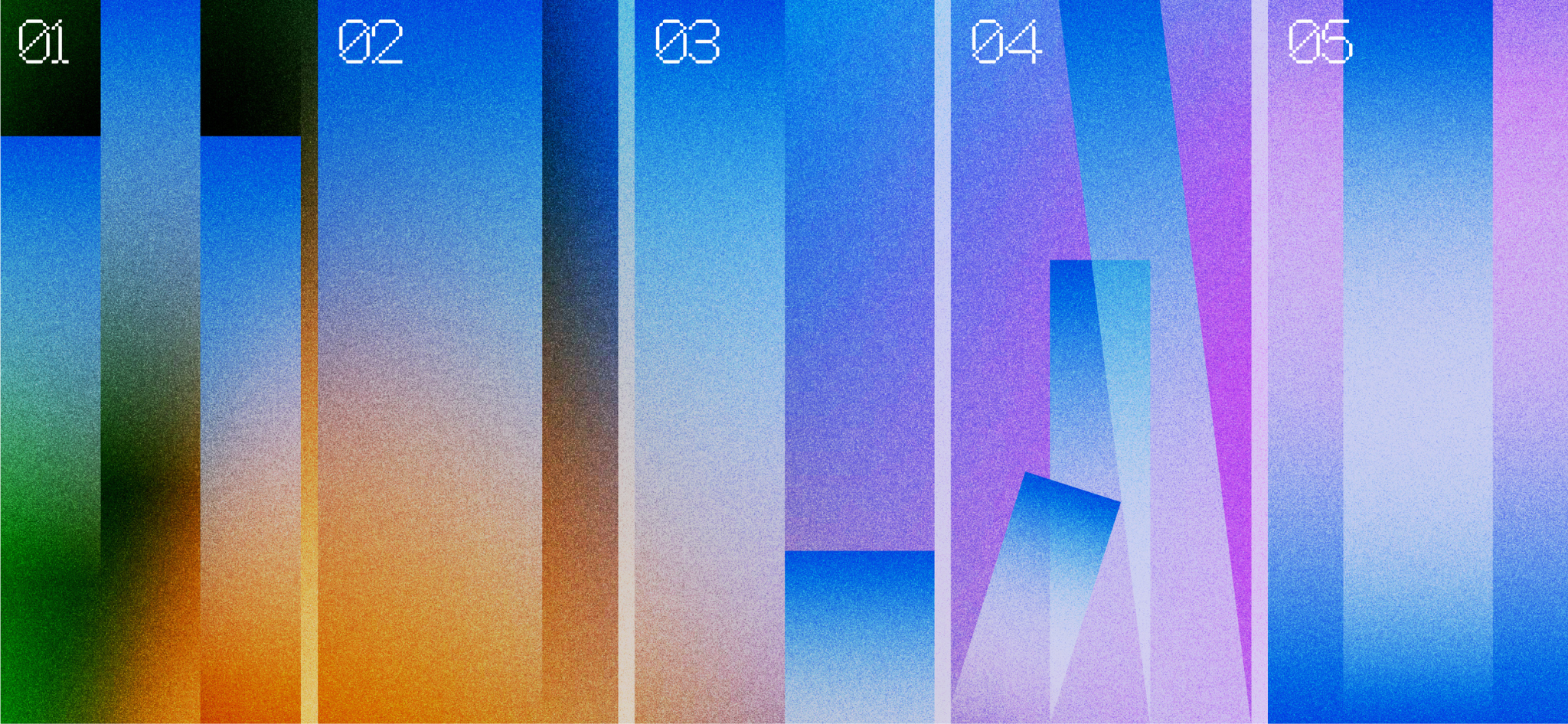
When you first heard of the mobile app called Marco Polo in the spring of 2020, you might have wondered why the world was suddenly enthralled with a 13th century Venetian merchant. Or whether the old swimming pool game of closed-eyed beach ball tossing really needed to be replicated in app form.
Thankfully, the product in question involved neither scenario. Its premise was simple: a place to communicate with loved ones by exchanging video messages, to be filmed and consumed at the time of your choosing. While Marco Polo had been created and released a few years earlier, an unexpected onslaught of social isolation brought it to the sudden attention of millions.
Despite the clarity of its stated purpose — helping people feel close — the app itself is hard to categorize. It’s like the earnest lovechild of a group text and a video chat, with a hint of voicemail and just the faintest whiff of a podcast. It’s not a social network, yet it feels like one in minuscule form. It appears both high-tech and lo-fi at once.
Even among all those influences, Marco Polo manages to be its own entity. Yet the app has already lived a few lives in its handful of years. It was initially designed to help a family stay in contact across time zones after the birth of a founder’s baby. Later, it was pitched to broader audiences as a “video walkie-talkie.” And come April 2020, the world claimed it for a third purpose: lockdown life line.
As any parent will attest, no matter how purposefully something is conceived of and nurtured, it ultimately takes on a life of its own. Whether or not its designers intended it, Marco Polo gave millions of socially starved people the perfect tool in a time of need. But a year and change later, with our social isolation receding, what will become of it now?
I fell into my Marco Polo thread in the early days of lockdown, back when quarantine seemed like a breezy hiatus that might last a couple weeks. Two old college buddies and I formed a trio, and while geography had separated us for the better part of two decades, our video messages quickly brought us back into the easy cadence of our younger days.
At first, we’d swap monologues about the topics on everyone’s mind at the time — the weirdness of the situation, the foibles of working remotely, the frustration of having a sudden burst of free time with few ways to use it.
But as weeks turned to months, our Polos took on added layers of depth. We’d discuss how our relationship to work was evolving, and how our professional skills were helping us meet the moment. One of us is an expert in human resilience and another in emergency management, so both had plenty to cover. (The value of a brand strategist in times of crisis still remains murky at best.)
The asynchronous nature of Marco Polo as a medium shaped the rhythms of our ongoing conversation, making it distinct from any other form we’d experienced. We would respond to some points, and let others stand. One of us would give a prompt, and the others would interpret it in their own way — or reflect it back anew.
Some installments were talky 20-minute sessions guided by notes; others wordless scenes set to music. Along with changes of season, the evolution of hair and beards marked the passage of time.
The disrupted flow of that time over the pandemic affected everyone, but within our troika, it brought a surprising sense of flexibility. We harbored no expectations on when to respond. Certain days would see a flurry of back-and-forth exchanges, while other times, days would pass between posts. An unspoken agreement remained throughout: each of us would act on our own schedule, without judgment.
We knew in the moment that Marco Polo was enabling companionship when we needed it most. But months later, I now recognize that the app’s infinite flexibility was providing us with something even more profound. Amid a sustained period of uncertainty and helplessness, it offered a precious gift: the slightest amount of control.
Where pandemic life had imposed a certain rigor on our daily lives — from masks to groceries to the endless parade of zombie-eyed video calls — Marco Polo became a place to operate on our own terms, and in our own time.
Jeff could offer meditation lessons in one breath and laugh at his own dad jokes in the next. Eric could fire up the app on a road trip and spin hour-long stories that whizzed by as quickly as oncoming traffic. And I could read aloud early drafts of essays that would appear on these pages — or simply improvise over the course of a ten-mile stroll. All was permitted.
Our agreement on timing also meant we could consume messages in whatever way suited our mood. We could stack up a week’s worth of dispatches and enjoy them out by the fire with a warm beverage (or perhaps a warming one). The app’s mobile nature meant we could listen to entries on walks and road trips, enjoying the audio like a personal podcast. In a time defined by constraints, Marco Polo felt unlimited in its possibilities.
Unlike a social network, we three never thirsted for the dopamine hit of a like or a comment. In contrast to Zoom calls, we didn’t feel pressure to be “on,” or cheery, or even sober. The Polo-induced time lag meant we were spared from real-time active listening — which we all now know to be one of life’s more exhausting activities.
At last, we’d discovered a digital habit that actually gave us energy rather than sapping it.
Because in one part of our lives, we were no longer projecting what the world wanted us to be. We were finally free to be ourselves.
Until, that is, we were asked to pay for the privilege.


.png)